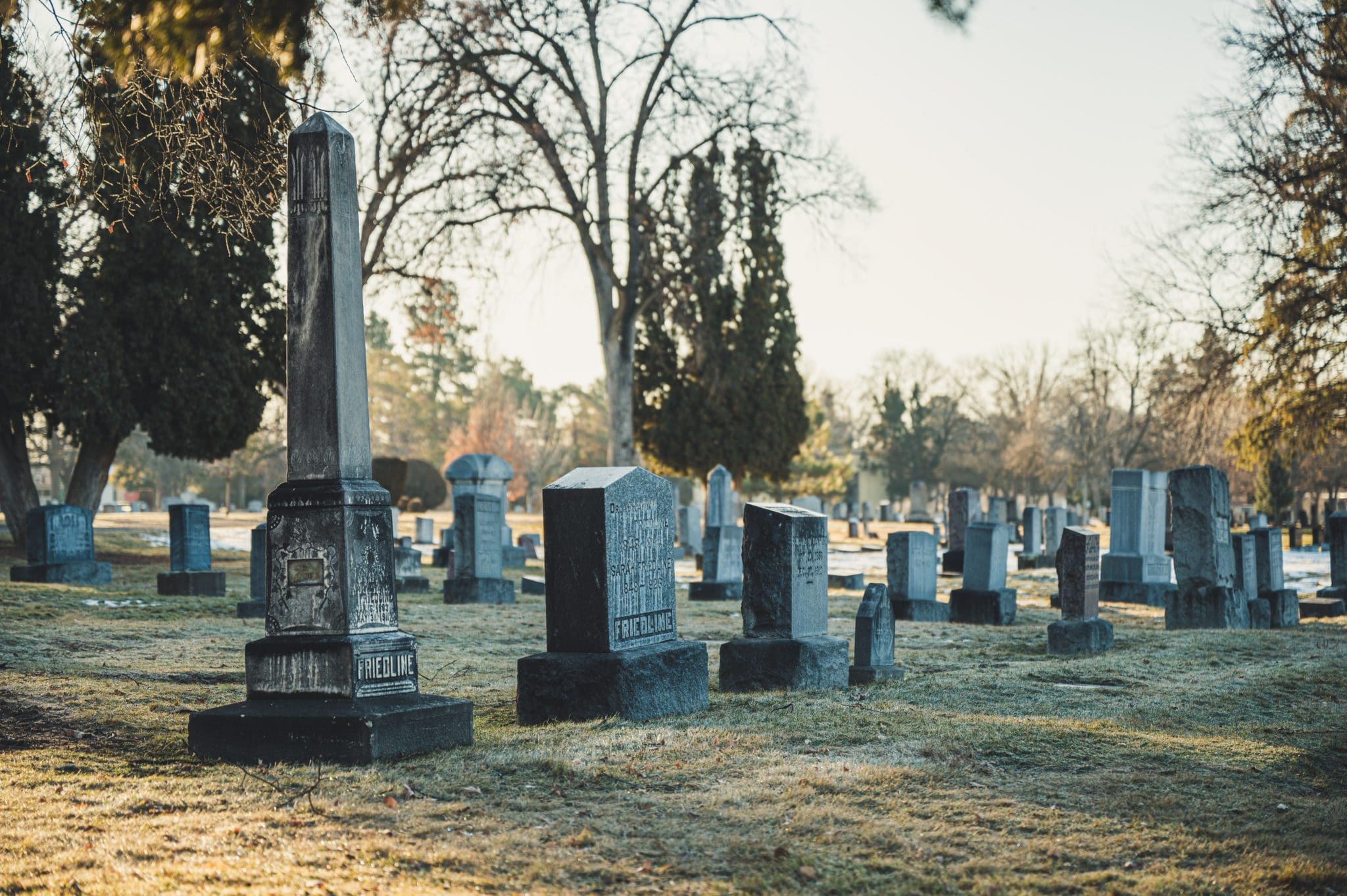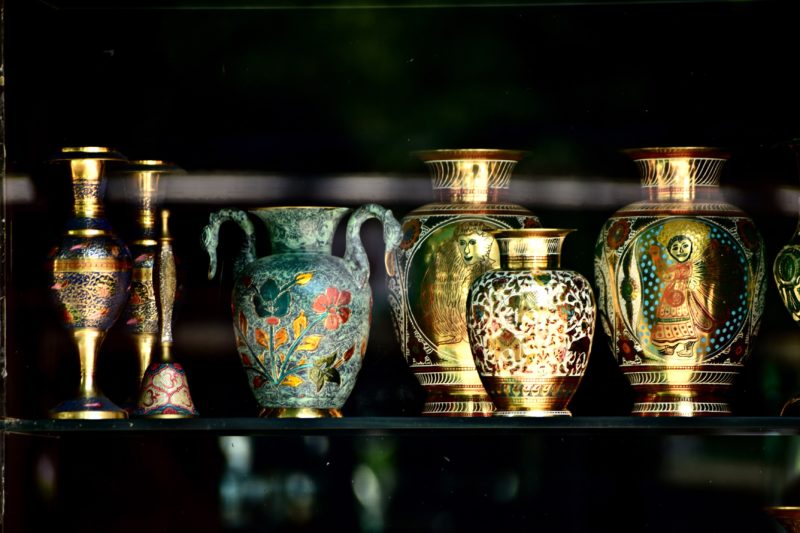
If you’re planning a funeral, you might be wondering about the difference between cremation and funeral costs. First, it is important to note that cremations and burials both work to decompose the body; the cremation process uses heat to reduce the body to its basic elements while an in-ground burial allows the body to decompose naturally over time.
Second, when choosing how to inter your loved one, consider cost, any religious affiliations, or traditions your family may have. Ultimately, the choice is up to you and depends on what’s best for your particular circumstances. Below we will explore the various cremation and funeral costs to help you make an educated decision that feels right for you.
How Does the Cremation Process Work?
You can probably envision how a burial works even if you’ve never attended a burial service before, but it might be more challenging to make decisions about the cremation process if you’re not sure exactly how it works.
Cremation has been a popular interment process for approximately 2,000 years and has evolved during that time. Today, crematories have industrial applications that are designed specifically for the cremation process. The cremation chamber is called a retort and is big enough to accommodate one human body. These chambers are required to stay up to environmental and air quality codes and are powered on propane, natural gas, or diesel. All cremation chambers are computerized now with automated cremation processes that take 2-3 hours to complete.
Before the cremation begins, the funeral home must obtain proper authorization and identify your loved one. To do this, you will complete paperwork that authorizes the funeral home to perform a cremation. You’ll also let the funeral home know who is picking up the cremated remains and specify which type of container you’d like for them to use.
After the funeral home has the necessary paperwork, they’ll identify the body via a family member and then place an ID tag on the body, which will stay on the body during the entire cremation process. Once the process is complete, the crematory will give you some form of identification along with the remains.
Next, the funeral home will prepare your loved one for cremation by bathing, cleaning, and dressing, (all optional depending on the funeral home) and then will remove any items you’d like to keep such as jewelry. They’ll also remove prosthetics or any medical devices to ensure that there are no reactions during the cremation and recycle them per the facility’s protocols. No devices will be allowed to be reused; they are often melted down or taken apart and then properly disposed of.
After the body is suitably prepared, the funeral home will place your loved one in a cremation container for the cremation process. These containers are not caskets that you see at funeral services; they are specifically designed for cremation and are usually pine or sturdy cardboard boxes. You can choose whatever container you feel comfortable with—it just has to be able to hold the body, and it has to be combustible.
Once the operator at the crematory places the container into the chamber, the body is exposed to extreme heat, evaporation, and open flames to reduce it to “ashes,” which are mostly bone fragments. After the body is properly cremated, the remains have to cool before the operator can open the chamber. Then, they remove any metal or nonhuman material left behind, such as screws or pins, and recycle it responsibly.
Then, they put the “ashes” in an urn of your choosing or a temporary container. You will receive anywhere from 3 to 9 pounds of cremated remains back from the funeral home. Many crematories but not all will allow you to attend the initial part of the cremation if you are a close relative, so check with the facility you’re considering to see if they allow this, and if so, how many people are able to attend, usually it’s only about 1 -4 people.
How Much Does Cremation Cost?
Now that you know the basics of the cremation process, you’re probably wondering, “How much does it cost to be cremated?” The average cost of cremation runs between $4,000 and $7,000, but there are certainly less expensive ways to have your loved one cremated.
Most funeral homes offer a cremation package that includes a memorial or funeral service with a viewing prior to cremation. These packages can cost anywhere from $4,000 to $10,000. You can, of course, choose to forgo a cremation package and opt for a direct cremation instead. A direct cremation does not include a memorial or funeral service, and your loved one will be immediately cremated after their death. This is the most affordable cremation option, costing as little as $1,300 or as much as $6,000 depending on the area of the country you live in.
It’s important to note that you are not required to buy a casket from a funeral home when you choose a direct cremation. If you choose not to, the crematory may be under strict requirements to make other options available to you, such as a sturdy cardboard box or another container. You also are not required to choose an urn from a crematory or funeral home—you can always purchase an urn from a third-party seller to save on costs.
You can also choose to donate your body to science or become an organ donor. These options allow researchers or physicians to use the body as needed before cremating it for no cost and returning the cremains to the family.

Cremation and Funeral Costs: What Option Makes The Most Sense For You?
Most people assume that cremation is more cost-effective than a full funeral with an in-ground burial, which is mostly true, but some cremations can cost up to $10,000, while the average funeral cost runs between $7,000 and $12,000, so it all depends on your budget and your loved one’s preferences for interment.
Here’s a rundown of costs that are associated with cremation:
- Cremation caskets: $350-$600+
- Rental caskets for pre-cremation viewing: $500-$1000+
- Urns: $50-$1,000+ depending on the material, size, and engravings
- Companion urns: A companion urn holds the remains of two people and costs between $150 and $500
- Eco-friendly urns: These are disintegratable or biodegradable and cost between $70 and $300+
You also have the option of keeping a small portion of your loved one’s remains in a piece of jewelry or a small memento. Costs for these types of keepsakes vary, so it’s best to do some research and talk with the funeral home about options that best suits your financial needs. It’s important to remember that you can prepay any cremation costs by working with your local funeral home.
When it comes to planning a funeral service, there are several costs to keep in mind:
- The funeral home you choose
- A graveside service
- The type of casket you choose
- Grave markers, headstones, or vaults
- Embalming or refrigeration costs
- A cemetery’s closing and opening costs for burials
- Flowers, obituary postings, transportation, and more
If this all feels overwhelming, you’re not alone, start by researching funeral homes in your area. Funeral home costs vary, seldomly some offer financial assistance while most others don’t, mainly for tax reasons, and funeral homes aren’t set up to be lending institutions. This type of pre-planning and knowing the specific costs of everything you’d like included in a funeral service can help ease some of the financial burden and stress that often comes with planning a funeral. Once you have an idea of how much everything will cost, you can decide which things are priorities and what you might be able to live without.
So now that you know a bit more about the funeral-planning process, here’s a breakdown of funeral costs:
- Funeral home service fee or professional service fee: This is a common, non-declinable fee that covers things like securing permits or the death certificate and coordinating any other necessary arrangements. This fee costs between $2,000 and $2,500+.
- Burial: The average burial costs around $9,000 depending on the casket, burial vault, cemetery fees, and headstone, or other burial items you choose.
- Embalming: $800-$1,500+ depending on the funeral home and whether or not the body is being cremated.
- Floral arrangements: These run between $500-$700 and include things like wreaths, sprays, bouquets, and more.
- Cemetery opening and closing fees: Most people don’t know that the cemetery will charge you to open and close the burial site. This costs around $1,000 in addition to the plot cost, which runs between $1,000 and $4,000.
- Headstones and gravemarkers: $2,000-$5,000 depending on size, engraving, and design. You can save some money by purchasing a grave marker that lies flat on the ground—these usually cost around $1,000
- Casket: If you’re planning a traditional funeral service, this will most likely be your biggest expense. On average, caskets cost between $2,000 and $5,000 but can cost up to $10,000+ depending on the material and design.

Financial Assistance for Interment Services
No one should have to forgo the type of funeral they want just because they can’t afford it, and if you’ve read this far, you know that planning a funeral can get pretty expensive. Some organizations do offer limited financial assistance, especially for veterans or people with other government benefits, however, this does take some time to get approved.
Life insurance policies exist to protect surviving loved ones from any financial burdens and help with funeral costs and any other related expenses including medical bills.
You can also work with a funeral home to plan a direct cremation or direct burial, which just means you won’t use any viewing, visitation, or funeral services and just have your loved one immediately cremated or buried. If you go this route, you can always hold a memorial service down the road.
If you or your loved one is a veteran, you are allowed a free burial in any national cemetery, and your spouse or dependent children can be buried there as well. Military funerals can also save you money, but be sure to contact a VA office to understand which benefits are available to you and your family.
Last but not least, you might opt for an eco-friendly funeral to cut costs. Biodegradable caskets are on the cheaper end of the spectrum, and there are many organizations that offer green burial products and services that are cost-effective, but finding a cemetery to accommodate your wishes may be too tough, due to strict laws and regulations regarding green/eco-friendly funerals.



Recent Comments